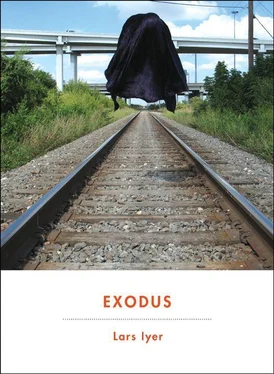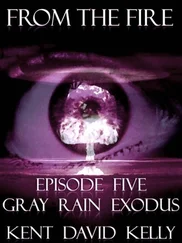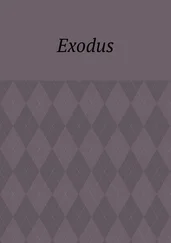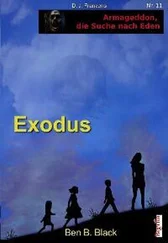On a bench behind Little Chef , staring out at the Firth of Tay.
Journey’s end. The tour’s over. ‘Do you think you’ve learnt anything?’, W. asks. No. He hasn’t either, he says. Actually, he thinks he’s forgotten things. He thinks his learning is decaying, W. says. His thought is rotting. As a result of our tour, the level of European culture has sunk a little bit lower.
Did we really think we could escape the end of philosophy? W. wonders. Did we really think we could make a philosophy out of the end times, when the end times means: the end of philosophy?
Plan A’s collapsed, W. says, and there is no Plan B. There’s only fantasy after the collapse of Plan A … But what kind of fantasy? — ‘What are your dreams, fat boy? A cream cake as large as your head? A swimming pool full of corn nuts?’
He dreams of politics , despite everything, W. says. He dreams of the act that will redeem our lives. We’ve failed as thinkers, he says. He knows that. But as activists ?
What became of them, the Essex Postgraduates? W. wonders. What, of the would-be thinkers touched by heavenly fire? Oh, not the ones who found jobs, not the state philosophers and state political theorists; but the others — the wild philosophers and wild political theorists, the thinkers driven out, and those who drove themselves out.
What happened to them, those known thereafter only by the stray signals they sent back? What, as they loosened themselves from old bonds, old friendships, and contact with them became intermittent?
Some disappeared completely. Where did they go? W. wonders. Did they change their names? Did they go underground? Did they travel to the four corners of the earth in search of obscurity? Is that what they found in the mountains of Yaktusk: obscurity? Did they manage to disappear in the ice deserts of Antarctica? Did they lose themselves in the rebuilt Shanghai or in the favelas of Rio de Janerio? Did they hole up in the Aleutian islands to write a magnum opus?
Did they wander like Japanese poets through the stone forests of Yunnan, leaving traces of their passage in fragments of as yet unwritten philosophical masterpieces? Did they take to the steppes to think and write in secret, getting ready for their magnificent return? Did their heads seem to explode as they lay beneath shooting stars on Goa beaches, bombed out on ketamine? Did the pain seem to radiate out of them like light as they volunteered to be crucified in Pampanga?
Some devoted themselves to politics, W.’s sure of that, to militancy, to joining the Zapitistas, to signing up with the Naxalites in India. Still others became partisans, became insurgents, became foragers of the scrubland, nomads on the plains, ever on the move, ever watchful. Some deserted to head further into the wilderness, further into obscurity. Some were known only as missing persons , their relatives searching for them in third world jungles, their friends leaving tributes on Facebook pages.
Some became ill, mentally ill, W.’s sure of that, too. They wanted derangement, to derange themselves. They wanted insanity, seeking it by every means: by drugs, to be sure, but also by ascetic rigour. ‘ We must become what we are ’, they said to themselves. ‘ Each one of us is his own illness ’, they said to themselves. And so they sought to intensify their illnesses, to drive them deeper, and then to enter wholly into them as into a secret fissure.
Some sought solitude, silence, wanting not to express themselves, but to have nothing to say. Some gave up thought for art, for anti-art, making sculptures in the wild, sculptures out of the snow and air, for no one to see. Some wrote great poems, then burned them, watching the pages crispen and catch fire. Some wrote great philosophical treatises and tossed the pages into the wind.
Some sought to lay waste to their lives, to throw them away. Some sought to sacrifice themselves to nothing in particular, wanting only to squander what had been given to them. Some drank themselves into oblivion. Some smoked themselves into vacancy. Some blew out their brains on hallucinogens.
Some wanted to become just like anyone else; no: more like anyone else than anyone else, as anonymous as possible, as buried in ordinary life as possible, taking the most mundane of jobs, leading the most mundane of lives.
Some, in W.’s mind, sought to think without thinking, to write without writing. What matters is to live this ‘without’, they said to themselves, very mysteriously. What matters is to live outside thought, outside writing …
Some gave in to bouts of despair, throwing themselves into rivers and oceans. Some gassed themselves in bedsits, some launched themselves through sixth-floor windows. Some reddened the snow with chunks of bloody brain and skull. Some broke their knuckles punching walls. Some pissed themselves in gutters, and shat themselves in holding cells. Some cut open their bellies and spilled their guts into the air.
Some took upon themselves all the miseries of the world: some cut their throat because they believed themselves responsible for them; some drove swords into their chest because of what they hadn’t done to prevent them.
Some sought to side with the proletariat, earning no more than the proletariat, gleaning fruit and vegetables from market stalls, and clothes discarded in warehouse bins. Some sought to live alongside the proletariat, and the lumpen proletariat: the thieves and vagabonds. Some lived among those who have fallen beneath the proletariat: the displaced, the stateless, refugees who had escaped deportation.
Some half-drank themselves to death to live with the alcoholics. Some destroyed the bridge of their nose sniffing solvents, sniffing turps, to live among the solvent-sniffers and the turps-sniffers.
Some became recluses, shutting themselves up inside; some became hikkikomori , living with their parents but not seeing them, subsisting on food left outside their bedroom doors. Some took holy vows and disappeared into monasteries. Some became self-flagellants and self-scourgers. Some joined cults; some started them. Some preached on the street about the end of the world. Some tried to bring about the end of the world, to call the end closer.
Some sold themselves as mercenaries, some as prostitutes. Some joined the FBI, others the Foreign Legion. Some sided with the rats and the cockroaches, and dreamed of being eaten alive by rats and cockroaches. Some wanted to be devoured from the inside out, and longed for biting termites to creep into their nostrils, to crawl into their ears. Some came to side with viral life, with bacteria and protozoa, and dreamed of a world without humans, without vertebrates, without any kind of higher life.
Some, tormented by thought and the demands of thought, sought to destroy their very capacity to think. Some sought to slice off their own thinking heads; some placed a bit to their skull and began to drill. Some drove pencils through their nostrils into their brain. Some shot themselves through one eye, and then another. Some asked — begged — for lobotomy. Some, for their brains to be sucked out of their skull. Some, to be left perpetually asleep, aging silently. Some, to be forced into a coma; some, to be battered into a state of imbecility.
The Firth. Light flashing across the waters.
Away-From-Here …, W. says, no louder than a whisper. To go out, and never come back … He quotes Burroughs: ‘ It is necessary to travel, not to live ’. He quotes Gysin: ‘ We’re here to go ’.
We’re here to go: that’s what the Essex postgraduates knew, even though it brought so many of them to destruction, W. says. That’s what he knew, W. says, even though he didn’t join their exodus. Even though he was a coward.
Читать дальше












